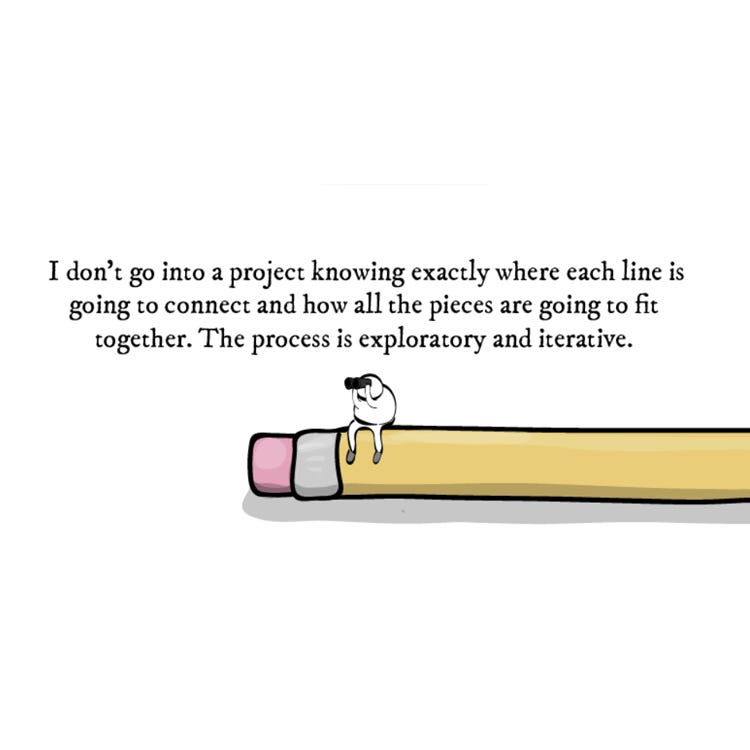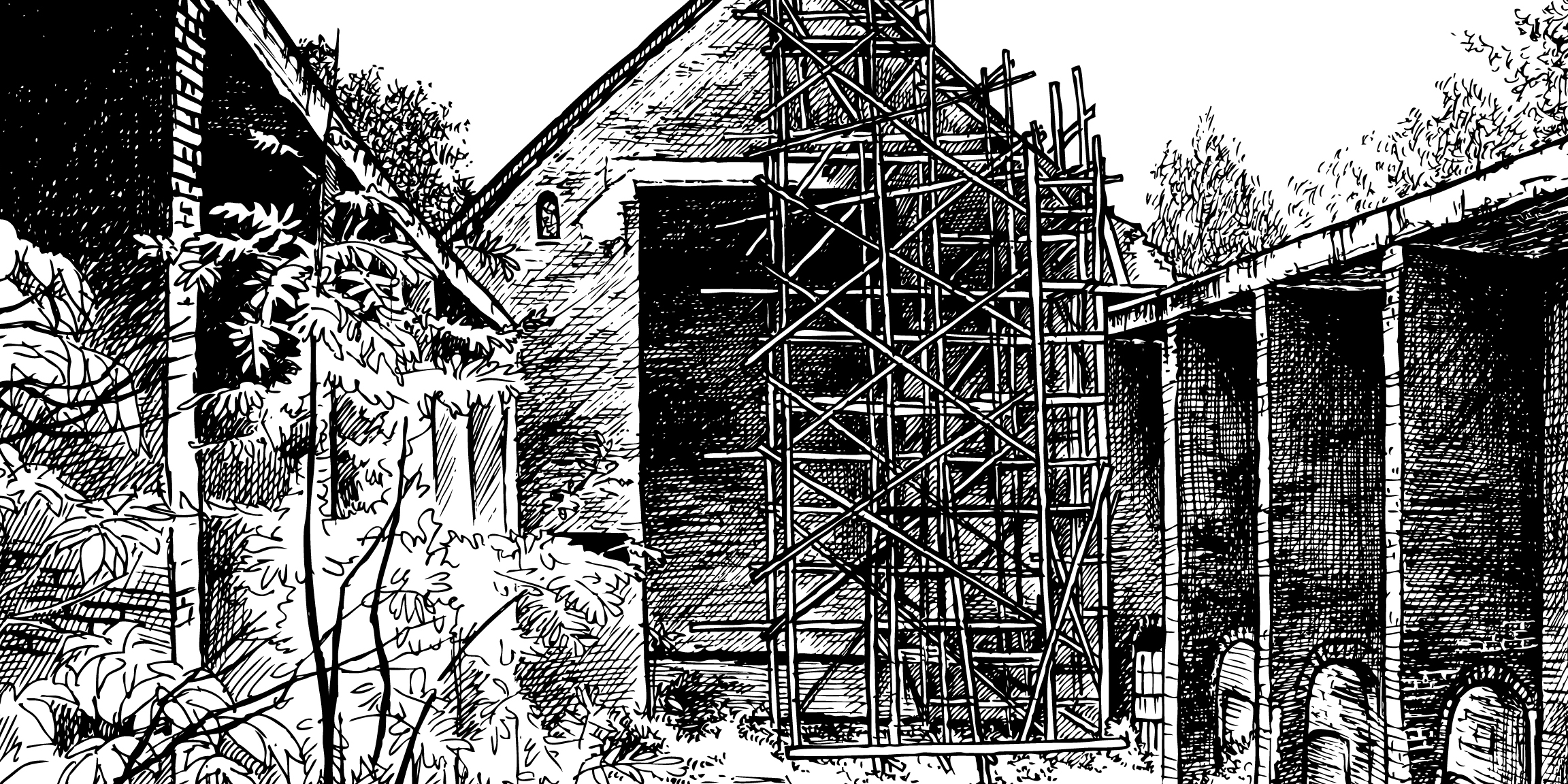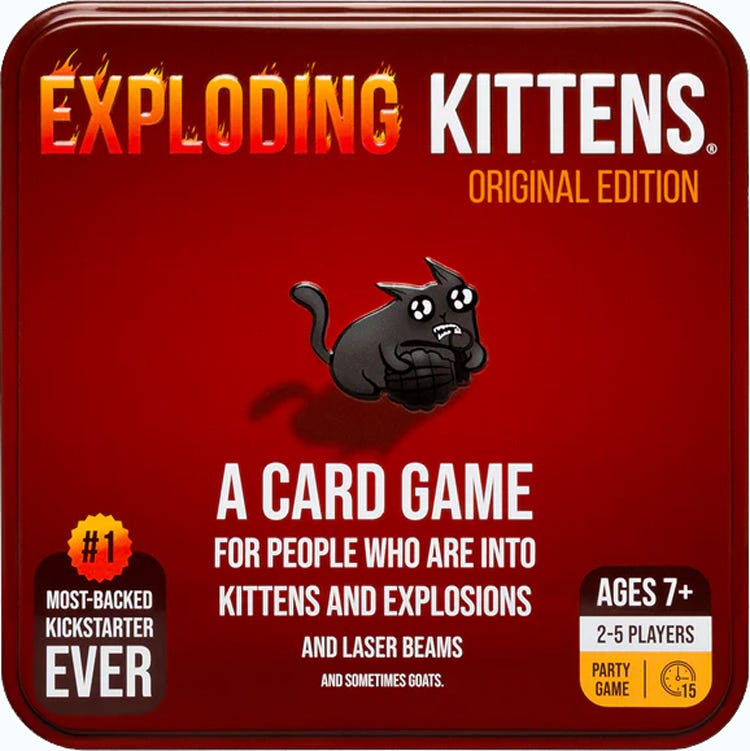✍️ No Words are Wasted
or, What Might Look Like a Drain on Productivity is Actually Proof of Productivity
Some of you may remember the poll I took a few posts back about How Do You Write Your Best. I’ve been turning the results over in my mind ever since.
Because, dear reader, they weren’t quite what I expected – and that’s disturbing me.
Most people didn’t think the Thing We Call Writer’s Block was a problem for them
Not quite as many people as I would have expected thought that time was an issue
More people than I thought didn’t really focus on contests and publication
Why is it disturbing? I launched this essay series with the vague and developing idea that writing fears that manifest in the Thing We Call Writer’s Block were the biggest things getting in the way of writing. I still think that’s true for many people. But these issues are maybe not as universal as I would have thought – at least for the readers here.
According to the highly unscientific poll, productivity is the biggest worry.
It’s interesting when you compare that to the question about having enough time. If amount of time had a direct effect on productivity (in writers’ minds), then those numbers should be close to each other. But it isn’t close at all: 92% level of productivity vs. 57% amount of time (poll results as of this writing). Ditto other things that I might deduce would affect productivity such as Writer’s Block or Impostor Syndrome.
Something else may be happening here!
Writers are Hoarders…
One of my first posts, Anchors Away, was about “wasted words” and how there is no such thing. Most people can understand that on an intellectual level. But when it comes time to cut out words or even whole chunks of words that aren’t working, we suddenly become rabid like the people on Hoarders.
“Do these words bring you joy?”
Long pause to consider the implications and realize the loophole…
“Yes! Yes they do!”
“These words were written in 2016, and you haven’t looked at them since. Isn’t it time you let go of them?”
Long pause to consider it was a trap all along…
I’m not about to say this is silly and we should be above such things. I get it. We put our heart and soul into the words we put down, it’s difficult to just let it all blow away in the breeze. Part of it is the whole “kill your darlings” thing, and our natural aversion to it. Another part, I think, is that we don’t want to throw away our hard work – the “wasted words” concept I covered before.
But here are two things to consider:
If those extraneous words are getting in the way of a great piece of writing, doesn’t it just make sense to get rid of them for the sake of your end goal?
There are ways to look at it that can help us get in the right mindset to get rid of those words that don’t belong, no matter how much we want to hold on to them.
In Anchors Away, I give the analogy of the builder building concrete forms and wall supports that ultimately are torn down again to leave the final structure. Wouldn’t a house look like crap if you left those in?
Thanks to friend and long-time reader Joanne Hudspith, I’ve found another analogy that may help with our predicament.
You may not recognize the name Matthew Inman, but you’ve probably seen his work. He’s a cartoonist who, among other things, created the game Exploding Kittens.
He also writes his blog The Oatmeal, which includes a series called Eight Marvelous & Melancholy Things I've Learned About Creativity. The first post in the series (after the Introduction) is called Erasers are Wonderful.
It’s well worth reading yourself – there’s no way I could do justice to describing the humour and interaction of pictures with words. It’s a quick read, so go ahead and take a quick peek before we continue. It’s okay – I’ll wait!
…
Funny, right?
The main point I want to pull out here is that Matthew purposefully draws extra “construction lines” that he knows he’s going to erase for the final version.
"I used to think that erasers were for mistakes and that the more I erased, the less of a real artist I was."
Sound vaguely familiar? It feeds into this whole notion that “real” writers sit down, write gold, and collect awards. Non-writers – imposter writers, fake writers – need to rewrite and chop words.
But here’s the thing: all writers rewrite. All writers chop words. Margaret Atwood probably chops more words before breakfast than most people write all day.
I like Matthew’s take on the whole creativity cycle, too. That’s exactly how it works for writers.

…But We Can Break the Hoarding Habit
So how about this. How about we look at those words we’re erasing like construction lines? It’s not quite the same for writers as it is for cartoonists, I’ll give you that. Matthew knows he’s adding construction lines. They’re already dead to him before he even draws to him.
But for writers, those words are alive! Until we kill them. Until we toss them to the side like garbage. That makes it emotionally harder to do.
Here’s another two things:
Words aren’t really alive. They don’t have consciousness. They won’t feel bad if they get left behind, physically, mentally, or emotionally.
The bad feelings we’re feeling aren’t really for the words. They’re for ourselves. But if we want ourselves and our work to succeed, doesn’t it just make sense to trim those words to make our writing stronger?
Construction lines in retrospect – that’s what those words are.
This is happening more and more in my own writing – probably because I’m feeling it easier and easier to do, emotionally. Here’s an example from my last essay on Community:
The words you see that were crossed out in the final draft helped me craft the essay and tell the story in the earlier drafts. (Plus, I’ll add, I had fun writing them!) Ultimately though, jettisoning those words afterwards made the story tighter and stronger. They slowed the post down and repeated ideas and did other things that undermined the final draft rather than supporting it.
Another secret: You didn’t even miss those words, did you? I certainly don’t even miss them. In fact, I’d be loathe to add them back in! Once they’d served their purpose, those construction lines had to go.
Chopping words is part of the writing process – and writing progress. If you’re worried that cutting chunks of text is slowly your productivity, reflect on your end goal. Are you trying to preserve words? Or are you trying to give your reader the most information in the most enjoyable and efficient way possible? In that sense, words are not wasted. They are spent getting you to where you need to go.
Key Takeaway: Writers can be like hoarders and might feel less productive for cutting those “wasted words”. But no words are wasted. Try looking at those words as construction lines or wooden concrete forms that need to be removed as part of the process and progress. Removing them in the final drafts makes it better for the reader. And that’s really the whole point.
Over to You: How Do You Feel About “Wasted Words”?
Do you have trouble cutting words? Do you feel “wasted words” slows your productivity? Do you have any tricks for killing your darlings if they just aren’t working? Let us know in the comments below!
I’ll leave you with a short video of Matthew Inman on creativity and other things…
Until next time... keep writing with wild abandon!
~Graham
email me if you get lost.







Ps I like the analogy of “construction lines” or supports
“Words aren’t really alive. They don’t have consciousness. They won’t feel bad if they get left behind, physically, mentally, or emotionally”
Are we sure tho (says the writer who picks up rocks in a beach and has trouble putting them down again) 😆